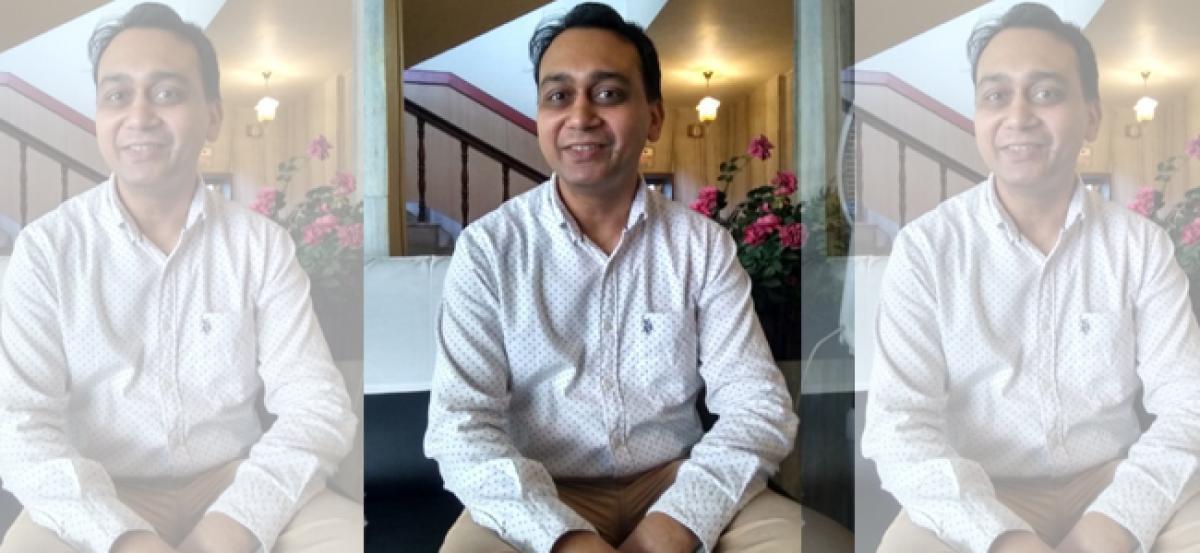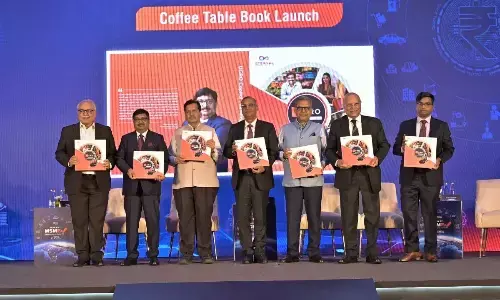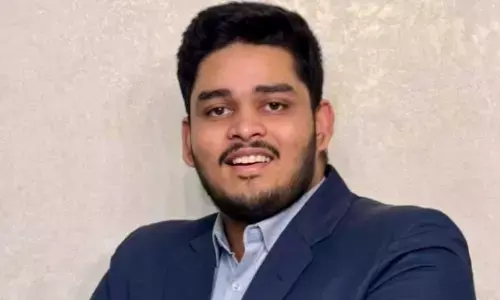Country needs power of Artificial Intelligence to be global power

The power of artificial intelligence (AI) is more decisive than nuclear power for the nations in future, in terms of being a global power, felt Prof Deepak Garg, the Director of Leadingindia.ai.
Warangal: The power of artificial intelligence (AI) is more decisive than nuclear power for the nations in future, in terms of being a global power, felt Prof Deepak Garg, the Director of Leadingindia.ai.
Leadingindia.ai is a nationwide initiative on ‘AI and deep learning skilling and research’, approved by Royal Academy of Engineering, UK under Newton Bhabha Fund and collaborated by University College, London, Brunel University, London and Bennett University, India.
Garg is in Warangal to speak at the three-day workshop on AI and deep learning at SR Engineering College, the institutional collaborators in Telangana. He shared his views with The Hans India and explained AI’s significance and what needed to be done for India to emerge as a global power and compete with world nations.
India is progressing in AI, but in comparison to the US, China and Canada, investments are low. More investments by government and private sectors, upgraded efforts needed to take place India in comity of nations powered by AI. Developed nations already started integrated AI into their defence projects and we just started thinking about it, he said.
Speedy efforts to match up with those challenges, to imbibe AI skills and research in youngsters are the need of the hour. It is touching every paradigm of life impacting education, agriculture and healthcare, the key sectors of economy, Garg explained.
After learning AI’s importance, AICTE has recently introduced it in its curriculum. But there is a need of quality teachers. “Leadingindia.ai initiative is timely in that manner. Enthusiasm and interest specifically learning potential and motivation from institutes in tier-II cities is very encouraging”.
Universities in India have to upgrade their curriculum and it has to be done as fast as possible or they will be left behind. Leadingindia.ai with quality skills workshops for teachers, plans to skill one million students in two years and to set up 100 quality research groups under 100 zonal lead colleges.
‘Universities and institutes attached with us trying to create specific research groups in healthcare, cyber security, agriculture, banking, finance and insurance and we hope to come up with a very good products out of these research groups in two years’ timeline,’ Garg said.
Institutions are being integrated with startup companies, bringing big names in the industry like Microsoft, Google, Amazon and Nvidia onboard. ‘Process is already on to change the AI landscape in India’, he averred.
There are around 50 startups in India in indifferent domains of AI. But looking at the size and scale of India, it is not a good number. ‘We shall have at least 5,000 startups working in the AI,’ Garg felt.
‘Private and government sectors need to pump more money into AI startups. If we compare the budgetary resources that are mobilised by China and America for AI, our budgetary resources are very less. Rs 3073 crore centre allocated for AI is insufficient.’
Given the impact and scale of AI and how it can change the lives of common people, more allocations have to be made, he stated. On the question of feasibility of AI, he said the potential of AI cannot be undermined.
“What is required is to localise applications and to select which areas we apply AI. We just cannot blindly follow applications developed by the other nations need to focus on local context,” Garg summed up.








